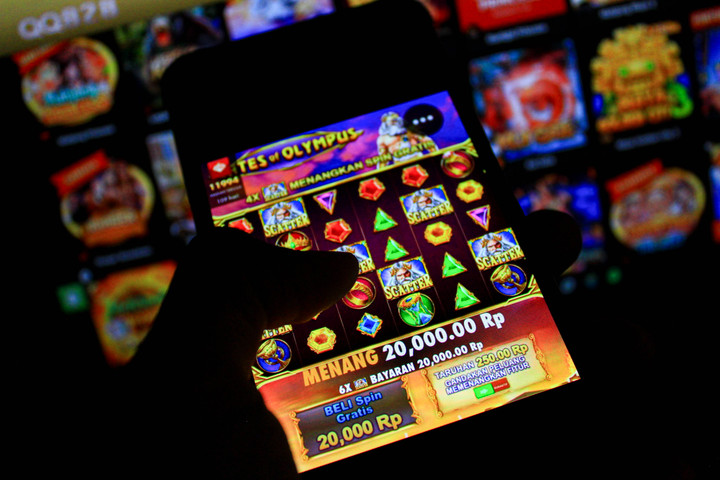Chaos theory - can it really be used to beat the house?
Card counting, dropping fake chips, secret cameras watching the dealer - we're probably all familiar with the ways certain gamblers try to beat the house.
But we're also aware that these techniques are, at best, going to get us chucked out face-first onto the pavement outside the casino. At worst, they could land us in jail.
But what about the mathematical concept of chaos theory? Some believe it can be used to give gamblers that much sought-after edge, and there's nothing in the rulebooks to say they can't.
But what is chaos theory? And can it really be used to beat the house?
What is Chaos Theory?
Chaos theory explores how some systems, even when they follow clear and simple rules, can behave in ways that are nearly impossible to predict.
That might sound a bit strange at first, because we usually think of unpredictability as being all about randomness. But actually, these systems aren’t random at all; they’re completely deterministic. If you knew their exact initial conditions, you could, in theory, predict what comes next. The tricky bit is, even the tiniest change at the outset can send the whole thing off in a completely different direction down the line.
A classic example that often gets brought up is the weather. It follows the laws of physics, but even a small change can make it hard to predict.
Even simple systems can behave like that, though. Back in the 1970s, Robert May came up with a really basic formula to model population growth. You take the current number, multiply it by a growth rate, and then adjust for limits like food or space. It’s called the logistic map. When the growth rate is low, the numbers settle into a steady pattern. But once you nudge it a bit higher, the behaviour shifts completely.
The values start to jump around unpredictably, never repeating, and there’s no clear pattern. That’s what we call deterministic chaos: you get really complicated outcomes from a rule so simple you could write it on a napkin.
Where people get the idea that chaos theory can beat the house
I’d say it ties in with how gambling feels most of all.
Even as someone who’s been in the industry a long time and knows that every spin is independent from the last, I still sometimes find myself raising the bet a bit on a slot after a long losing streak, convinced I’m about to hit a bonus feature.
You can’t help but start seeing patterns. It’s human nature to look for a rhythm or a system that might, just might, give you an edge.
➡️ New to all this? Learn more about how to play casino games.
To be fair, not all of it is on us. Casinos definitely do their bit to make players feel like there’s a trail to follow. Little signals here and there. That’s exactly the kind of atmosphere where you might think, right, this looks messy but not meaningless, so maybe chaos theory’s got something to say about it after all. I’m talking about when you come up against things like:
- Roulette history boards showing sequences like red, black, red, red, black
- Slot games displaying “hot” or “cold” machine labels
- Blackjack tables with digital stats showing dealer bust frequency
- Baccarat trends marked on grids (Big Road, Bead Plate, etc.)
- Online slots showing previous win sizes or streaks
- Live casino games showing “most common outcomes” from past rounds
- In-game prompts like “Red has hit 6 times in a row!”
- Leaderboards highlighting players with big win streaks
- “Lucky numbers” highlighted in keno or roulette interfaces
- Systems sold online claiming to “track” game behavior patterns
- Table signs showing previous jackpot hits or recent winners
How casino games actually work
Casino games work on a closed system that’s designed to produce results in a very particular way. The key thing to remember is that each result stands alone. It’s not like betting on football, where a midweek thrashing at home might affect what happens on the following Sunday.
In games like slots, roulette, and most forms of baccarat, there’s no memory; every round starts fresh. Even when playing something with a bit of continuity, like live blackjack, the structure is still carefully set up to limit anyone from finding a predictable pattern.
Online casino games (excluding live dealers)
The best online gambling sites run games using RNG software that uses fixed algorithms to simulate chance. The system takes unpredictable input to create a seed, then spits out a stream of decimal results on the fly. When you hit Deal or Spin, one of these is picked to decide the outcome based on the data at that moment.
For card-based games, that number picks a position from a shuffled virtual deck. If you’re playing online slots, it lines up with the reels to decide what lands on each row, all based on a set payout structure and how often each symbol is weighted in the system.
Every outcome is final, triggered by timing, and completely independent of any previous spin or deal, so there’s no knock-on effect or chain reaction.
Live casino games
Live dealer and land-based casino games are often where it might seem like everything’s linked together and part of something bigger. And it’s not just imagination. There's history behind that feeling.
Back in the 1880s, Joseph Jagger cracked a roulette wheel in Monte Carlo by spotting flaws. Others have done it too, noticing tiny biases, not by cheating but by observing carefully and catching things others missed. The point is, these moments weren’t about chaos theory, though they do show how a real-world system, if not perfectly maintained, can drift from true randomness.
When you get right down to it and look at how these games are actually run, it becomes clear they’re not built to adapt or respond. Let’s break down a few of the most popular ones.
| Game Type | What Drives the Outcome | How It's Controlled | Reset Mechanism |
| Blackjack and Baccarat | Physical cards dealt from a shoe | Pre-shuffled, sealed shoes; fixed dealing rules | Partial reset once cut card is reached and shoe is reshuffled |
| Roulette | Physical wheel and ball | Dealers alternate spin direction; wheels are checked for wear, levelness, and balance | Full reset every spin; no carry-over from previous result |
| Land Slots | Digital RNG built into physical cabinet | RNG outcome governed by fixed logic; payout percentages are certified and externally tested | Full reset each spin; no memory or influence from past results |
| Craps | Physical dice throws | Dice rotated regularly and inspected; throwing rules enforced strictly by dealers | Full reset after each roll; outcomes are independent |
What chaos theory does help explain in gambling
While chaos theory doesn’t neatly apply to the way casino games actually work, it does explain a lot about our own behaviour in a gambling environment.
One of the most intrinsic reactions when playing casino games is to start looking for patterns. That’s just the brain’s way of dealing with unpredictability by trying to create order. It’s perfectly natural. Chaos theory often gets muddled up with randomness, when in fact it’s really about how patterns emerge in complex systems.
Chaos theory makes more sense here when we look at ourselves instead of the games. I’ve seen it happen time and time again. Sometimes you win early, grow overconfident, increase bets, start losing, spiral into frustration, chase losses, and burn through your bankroll. Other times, you lose at the start, get more careful, slow things down, and somehow finish on top. One small outcome - a win or a loss - can send you on an entirely different trajectory.






 Five horror-themed slots while you wait for the launch of Silent Hill f
Five horror-themed slots while you wait for the launch of Silent Hill f
 How I learned to win online slots
How I learned to win online slots
 What AI is really doing to online casinos
What AI is really doing to online casinos
